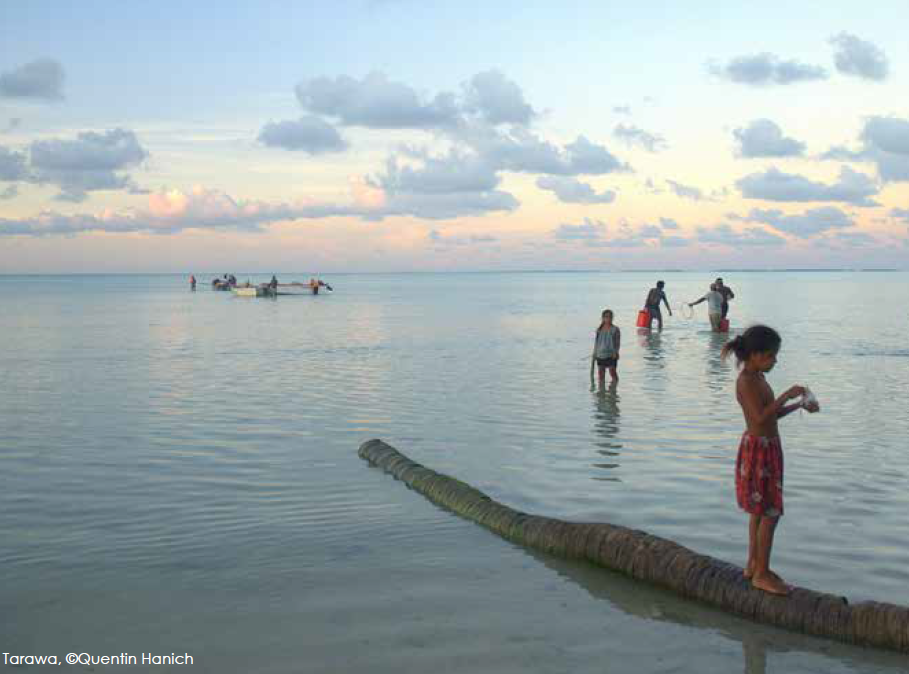Community-Based Fisheries Management (CBFM)
The Kiribati MFMRD operates a community-based fisheries management approach (CBFM), Nei Tengarengare, as well as island and zone approaches. The CBFM project recognises the wealth of knowledge held by communities regarding their fisheries and aims to involve all community members in sustainable management. Communities participate in the preparation of the CBFM plan and raise public awareness of the plan and area to which it applies. Island councils may also make rules on fisheries management at island level through the development of by-laws (SPC).

The coastal fisheries of Kiribati are typically artisanal and local. Rapid population growth has increased pressure on these resources, as evidenced by declines in abundance of target species such as goatfish, clams and bonefish.
In 2013, the Government of Kiribati made Community Based Fisheries Management (CBFM) a short-term priority strategic action in its National Fisheries Policy. This was followed, in 2014, by a three-year pilot project on CBFM focusing on two islands, North Tarawa and Butaritari, as a partnership between the Ministry of Fisheries and Marine Resource Development of Kiribati (MFMRD), the University of Wollongong (Australian National Centre for Ocean Resources and Security– ANCORS) and the Pacific Community (SPC), with funding from the Australian Centre for International Agricultural Research (ACIAR). There were four phases to the work: scoping threats and opportunities, identifying stakeholders and how they wished to manage their fishery, developing management plans, and monitoring and evaluation.
Five communities took part in the pilot project; over the three years, all of them produced CBFM plans. These are supported by the Island Council and elders association promoting measures such as banning the use of destructive fishing gears and practices. Legal backing is planned under the recently agreed Fisheries (Conservation and Management of Coastal Marine Resources) Regulations 2019.
Data-gathering through community meetings has improved knowledge across different stakeholder groups of fisheries resources and their sustainable exploitation. This work has been supported with training for community members and MFMRD staff by the project team. Community leaders have also been given a valuable sense of empowerment as part of the management cycle.
As knowledge and understanding of the CBFM approach and its benefits has spread, and well over 40 communities across 11 islands of Kiribati are currently working in this way. At the national level, the project has created momentum within MFMRD to use and incorporate CBFM principles.
[The Commonwealth]